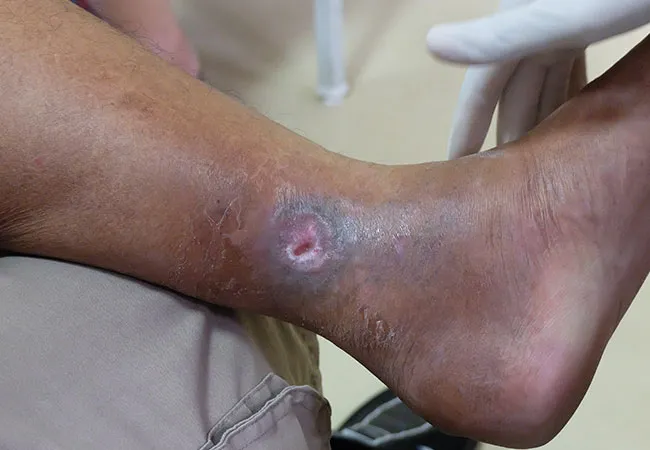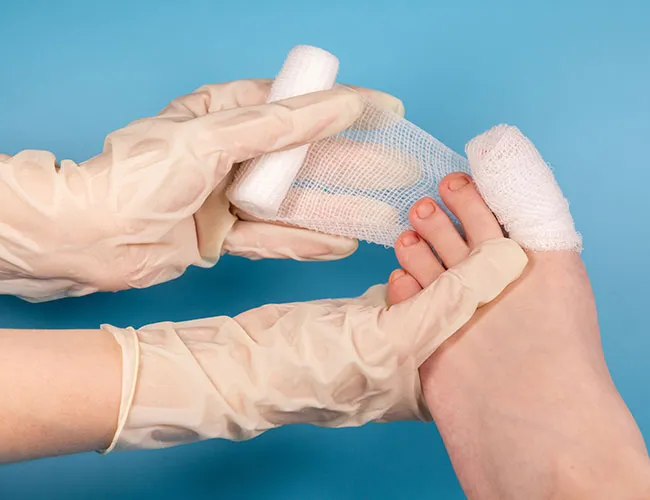


Arterial ulcers are a type of chronic wound caused by poor circulation, usually due to arterial blockages. These ulcers can be painful and difficult to heal without proper care. Early treatment is crucial to prevent complications such as gangrene or amputation. At Metro Mobile Wound Care, we specialize in providing expert treatment for arterial ulcers in the comfort of your home, avoiding the need for clinic visits.
Our comprehensive approach to arterial ulcer treatment involves multiple steps to ensure optimal healing and prevent further complications:
If you notice any of the following, it’s important to seek professional care immediately to prevent worsening of the ulcer and avoid severe complications:

There are several reasons why Metro Mobile Wound Care is the best choice for your arterial ulcer treatment:
We understand that accessing care should be as stress-free as possible. That’s why we accept Medicare insurance plans. Our team will verify your coverage and assist you with any insurance questions.

Don’t wait to get the care you need. Schedule your appointment with Metro Mobile Wound Care and receive expert, in-home treatment for your arterial ulcer. Our team is here to provide personalized care that promotes faster healing.
Yes, arterial ulcers can be healed with proper treatment, including improving circulation, wound cleaning, and specialized dressings. Early intervention is key to preventing complications and promoting healing.
Arterial ulcers should be cleaned carefully with a sterile solution to remove debris and prevent infection. A wound care specialist can guide you through the proper cleaning and care techniques.
Arterial ulcers are typically deep, painful sores that develop on the lower legs or feet, often with smooth edges and a pale or yellowish wound base. The surrounding skin may appear shiny and tight.
Pain relief for arterial ulcers can be managed through medications, proper wound care, and pressure-relieving strategies like leg elevation or compression therapy. Our team will work with you to manage discomfort.
While both are chronic wounds, diabetic ulcers are caused by nerve damage and poor circulation due to diabetes, whereas arterial ulcers are caused by restricted blood flow due to arterial blockages or insufficiency.
Arterial ulcers most commonly occur on the lower legs, especially around the ankles, feet, or areas affected by poor circulation due to arterial disease.